Japanese as a language contains a lot of what you might politely refer to as unnecessary or extraneous language, phrases and words.
Why use only a few words when a number of paragraphs can say the same thing in four times the amount of time.
In some languages it might be hazardous to simply nod and say yes to someone speaking to you in their native tongue. Who knows what you might be agreeing to?
But, in Japanese, you can kind of get away with that. Sometimes.
Let me explain...
Useful Travel Tips on Japanese Language and Culture
by Rob Dyer
Cultivating a knack for reading situations
Cultivating a knack for reading situations and then applying what you learn is something most people are capable of. Paying attention to non-language cues such as tone of voice, facial expressions and body language can all help ease your communication during your travels.
Japanese has different levels of politeness depending on the situation or those involved.
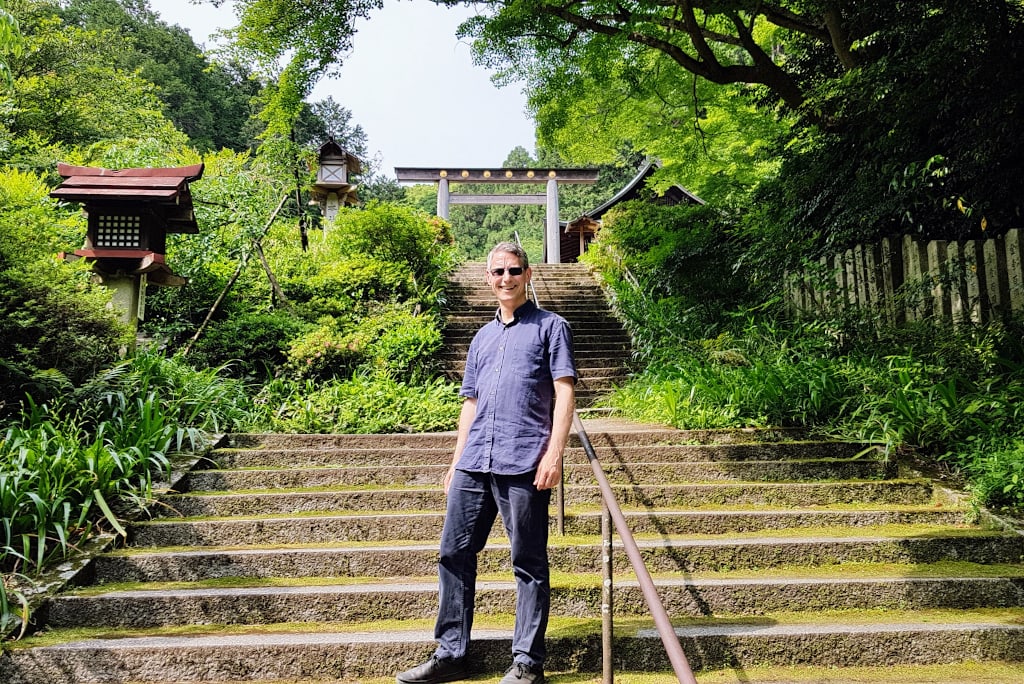
For example, when speaking Japanese you would speak differently when talking with your boss than you would when talking with friends privately. It’s not just that you wouldn’t say some things to your boss that you would your friends, but even simple things like saying good morning, or asking for something, or thanking the person you are talking with can use entirely different phrases and/or more elaborate versions of the same words.
Essentially you would use a more deferential style of language when speaking to your boss when compared with that used with your friends.
VIDEO: Top 7 Etiquette Tips For Travel in Japan
Being the gaikokujin - 'outside country person'
On your travels you’re likely to be identified as the gaikokujin or ‘gaijin’. Literally, gaikokujin means ‘outside country person’. So, from the moment you step foot in Japan you are marked out as different from the Japanese themselves.
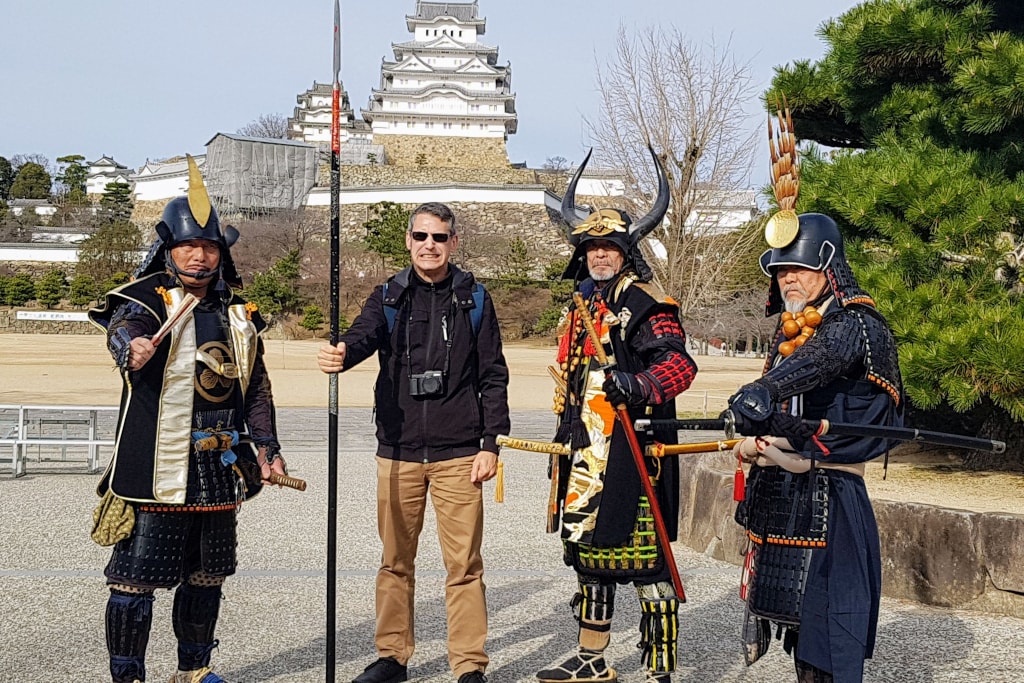
It may not always be possible to blend in with the locals, but you can still have fun along the way
Whilst this might have negative connotations, in the context of being a foreigner traveller in Japan, this actually plays to your advantage. The Japanese fully understand that most foreigners visiting their country will not speak the language. As a tourist, you’ll be (and be seen as) the ‘fish out of water’, and that will automatically cut you some slack.
In Japan the customer is God
Then there’s the Japanese cultural phenomenon of considering the customer as something very special indeed. In Japan there is a phrase “Okyakusama wa kamisama desu” that loosely translates as “the customer is God”. Whilst I think elevating a consumer to the level of a 'God' is a tad excessive, it does help demonstrate why Japan is one of the top countries in the world when it comes to delivering outstanding customer service and experience.
And this philosophy will apply across the board, whether you're buying train tickets, choosing a souvenir in a department store, or staying as a guest at a ryokan (a traditional Japanese inn).
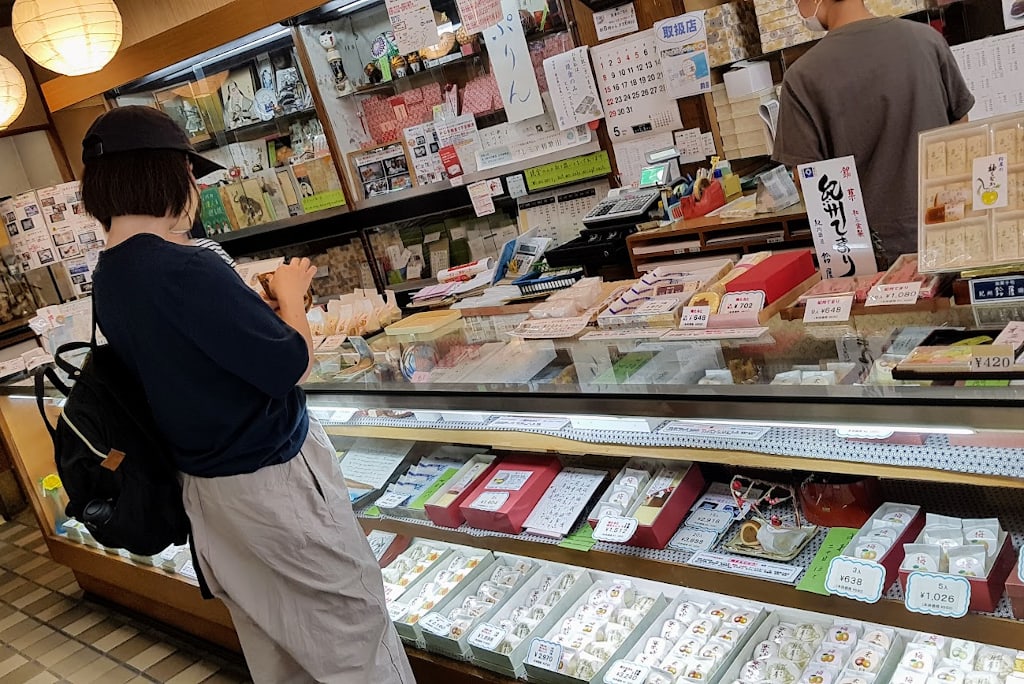
Shopkeepers will do all they can to help you make a purchase
When you can, and when you can't 'wing it'
So you’ll often hear very polite versions of common situational phrases that will be more elaborate which (in their essence) are simple requests or instructions. In these situations you can get by by knowing only a handful of key words that are situation relevant and often you can ‘wing it’.
Would I suggest you do this during a hospital appointment? No. But can you do this when shopping or buying tickets for travel or an attraction? Sure you can. Long time The Real Japan follower Mats Franzen struggles to learn Japanese but hasn't let that stop him visiting seventeen times so far. He shared some valuable reflections on his 17th trip to Japan in this post.
Want to learn Japanese?
Rocket Languages are experts in online language learning.
With them, you won't just be taking a language course. You'll be developing a deeper connection and understanding of the Japanese people, places and culture.
You are less than 60 seconds away from getting started.
Take a free trial to see what it’s all about and why they have over 2 million satisfied customers.
Once you’ve signed up, you’ll have access to several sample lessons, an exclusive discount, and more!
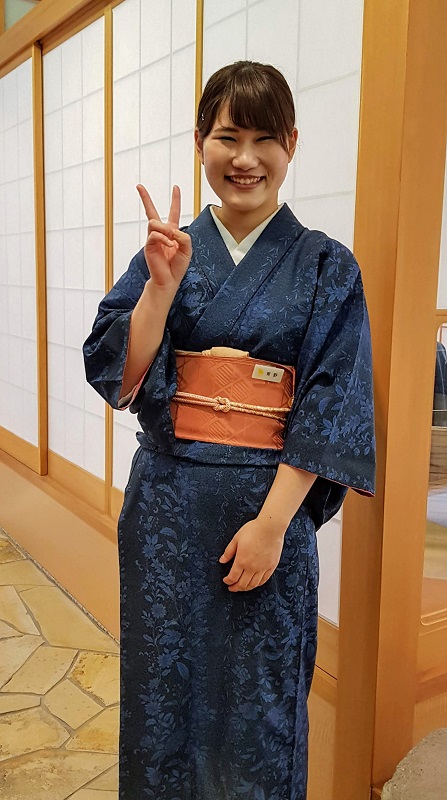
Struggling to learn Japanese? You're not alone
For many years I’ve had an undiagnosed brain condition. I’ve had numerous tests and scans both in England and in Japan, and while it is observable, it remains unsolved.
Day to day, it primarily manifests itself as a human version of the ‘goldfish’ memory problem. Meaning, I still have vivid memories from my childhood or many decades ago, but things I did in the last few days, hours, minutes or even seconds can be frustratingly elusive.
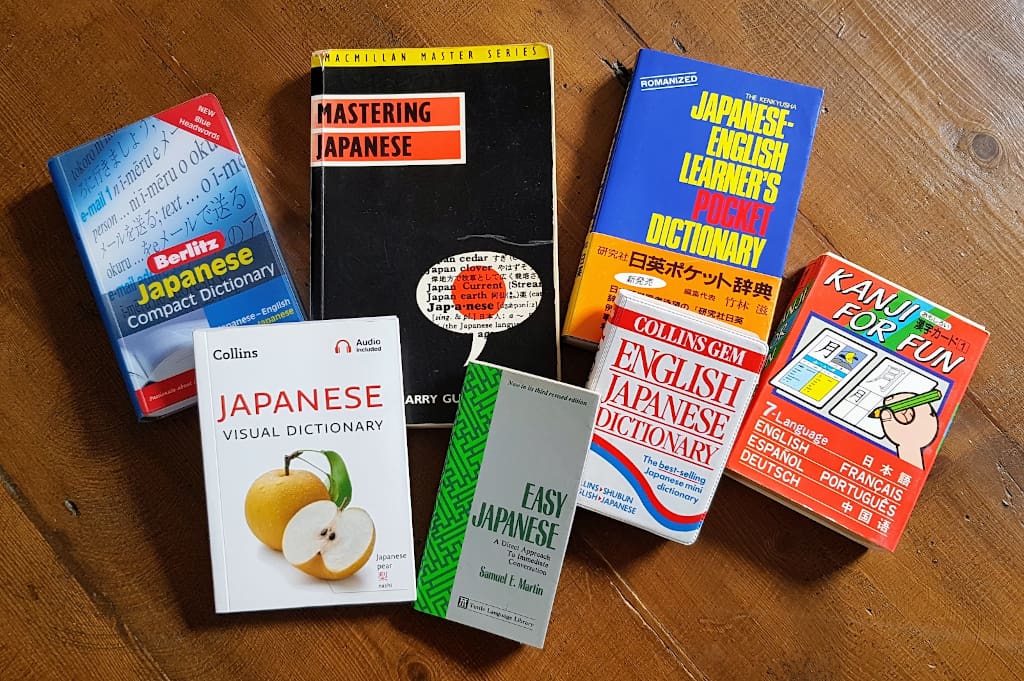
My limited Japanese isn't through want of trying
This makes learning a new language (indeed any new learning) something of an unending, and repetitive, process. New learning goes into my head, but storing it there can be infuriatingly difficult. Knowledge seeps out from the brain cells like some reverse intellectual osmosis.
I figure that’s the main reason I’ve been unable to learn much Japanese (or any other non-native language) despite first starting to back in 1992.
It also leads to me often losing my train of thought mid-conversation (or mid-thought). Even if it is on a topic I’m passionate and knowledgeable about. Which is why I find livestreams and live interviews a challenge. Making notes on my phone, or writing ideas on a Post-it note next to my bed at night are an absolute lifeline that helps me keep my sanity.
Travelling engages all the senses
I’m also an experiential learner. The more senses I can engage in any experience the more of it I retain. Which is part of the reason I like to travel so much.
It constantly engages all of the senses, meaning one gets immersed in previously unencountered situations and adventures.
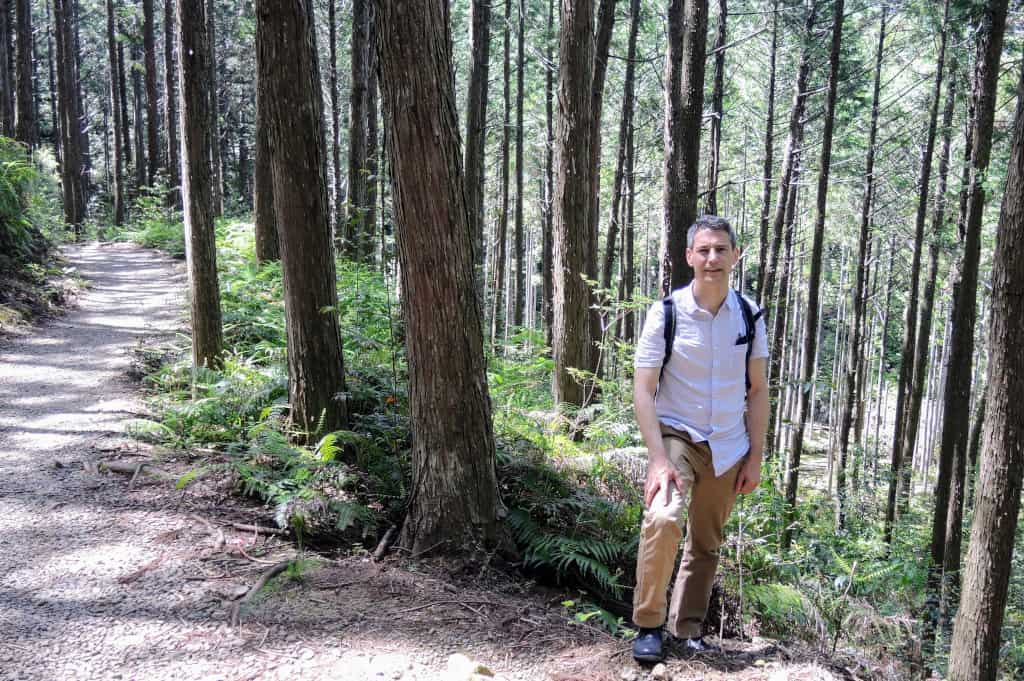
Days spent hiking in the mountains, like here on the Kumano Kodo trail, don't require much Japanese
When I look at photographs of past travels it triggers my other senses. I can recall how bitterly cold the wind felt that day, or just how comforting that steaming bowl of nabe was, or how all I could hear during a day walking alone in the mountains was the wind and birdsong.
And days spent in nature rarely require much in the way of language skills either.
VIDEO: Interacting With Locals in Japan
One thing that I have discovered down the decades of my travels in Japan is that there’s definitely something to be said for not being able to engage in everyday conversation with the locals. Of course, it’s not ideal, and I’m not suggesting that you aim not to learn as much of the language as you are able to. Rather that there are regular ‘mini-adventures’ one can experience along the way that would not otherwise happen if you could speak or read Japanese.
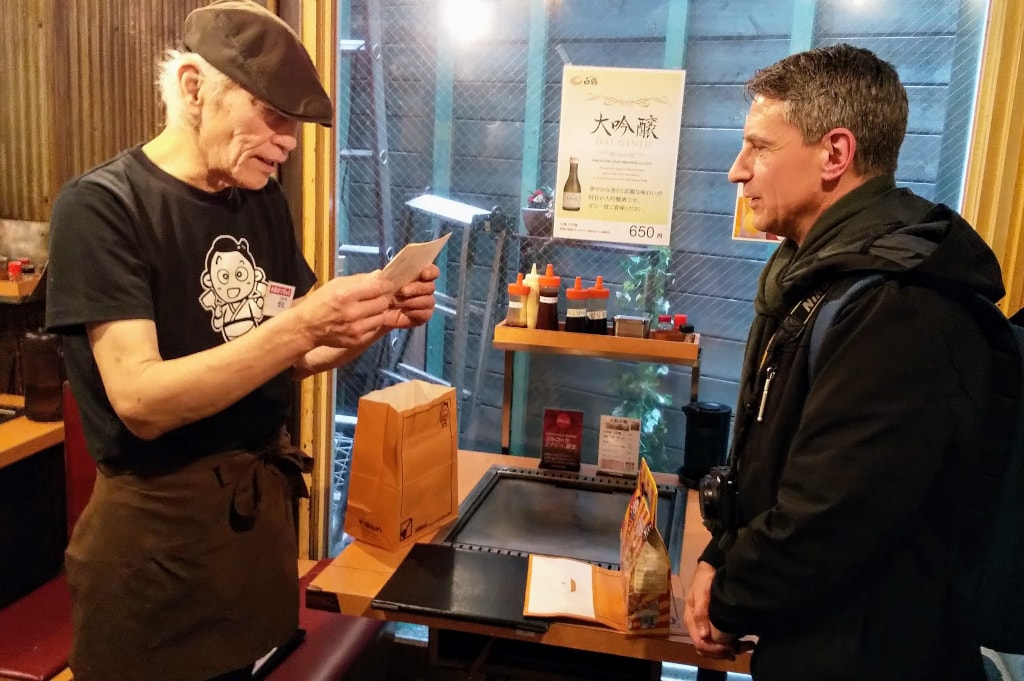
When you have a shared passion you can usually communicate the basics - Osaka Botejyu okonomiyaki restaurant in Osaka
It’s not just me that thinks this either. Others regularly tell me how they stumbled across a dish they had no sure idea of what it was when ordering it. And that introduced them to something new that they really liked.
It can actually work as a stimulant, encouraging you to constantly try new things. And more is new to you when you don't read or speak the language.
Conclusion - your enthusiasm alone can take you far
So, if you also struggle with learning Japanese, don’t let it get you down.
Just know that, as someone who is incredibly passionate about travelling Japan, as you wend your way through the country and encounter new experiences and helpful people, your enthusiasm for travel will go a long way. It can still convey to anyone whom you cannot speak with directly what it is you need in any particular moment.
If you'd like more tactics and resources for exploring Japan when you don't speak the language, I recommend taking a look at my book How To Travel In Japan Without Speaking Japanese.
What about you?
Do you have any experiences where not being able to speak Japanese led to a new discovery? A tasty new dish? A new friend who was a complete stranger? Where getting slightly lost revealed a wonderful new place? Share your stories by leaving a comment below.

About the Author
A writer and publisher from England, Rob has been exploring Japan’s 6,800 islands since 2000. He specialises in travelling off the beaten track, whether on remote atolls or in the hidden streets of major cities. He’s the founder of TheRealJapan.com.
Travel Planning Services for those who don't speak Japanese
Have some questions about planning your trip to Japan? Want help planning a Japan itinerary? The Real Japan offers some services that you might like to take a look at.
My Travel Planning Calls are ideal if you have a few unanswered questions about a trip you are planning, or would like feedback and suggestions on an itinerary you are building. Learn More HERE.
If you'd rather hand over all the hard work for planning an entire trip then my Travel Planning Service is tailor-made for you. Learn more HERE.
Further Japan travel resources are available in The Real Japan Travel Store.
Resources
My 'Japan Without Japanese' Travel Guides
How To Travel In Japan Without Speaking Japanese - eBook
How To Travel In Japan Without Speaking Japanese - Audiobook
How To Travel In Japan Without Speaking Japanese - eBook & Audiobook Pack
3 Guide Travel Pack - 2 x eBook & Audiobook - SAVE 20%
Further Reading
3 Most Common Mistakes Planning A Trip To Japan
5 Travel Essentials You Need BEFORE Coming To Japan
How The Japanese Anticipate Other People’s Needs
How To Plan A Trip To Japan In 4 Easy Steps
Japan Without Japanese: How To Travel In Japan When You Don’t Speak Japanese
Top 7 Etiquette Tips For Travel in Japan
Valuable Reflections on my 17th Trip To Japan (Includes 28 Day Itinerary)
Visiting Japan Without Speaking Japanese (Video Series)
Where to Go, Stay and How to Communicate in Japan
More Planning Resources
My List of Recommended Japan Travel Resources
All My Travel Guides & Services
If you enjoyed this article please share this image online:


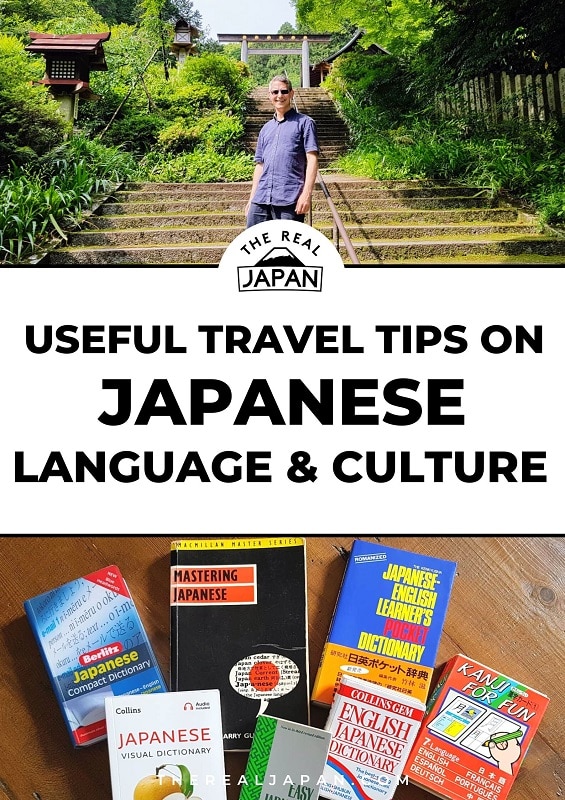
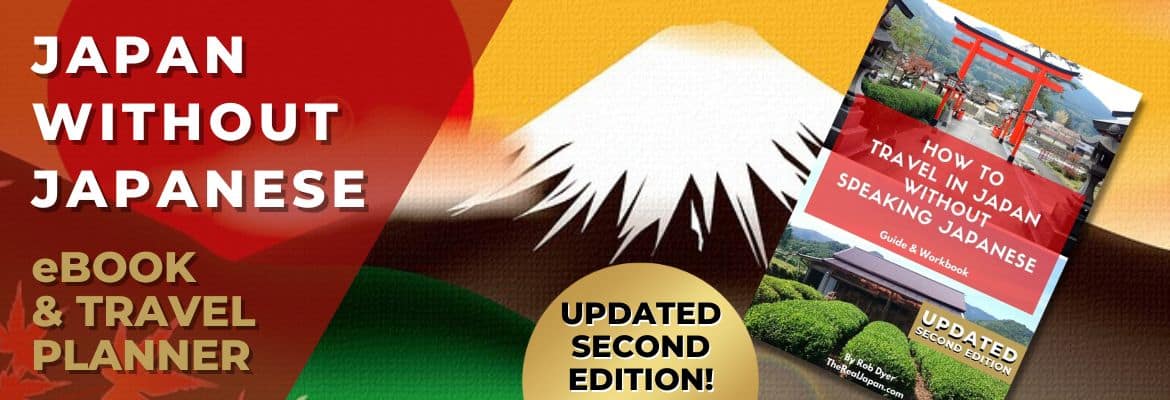
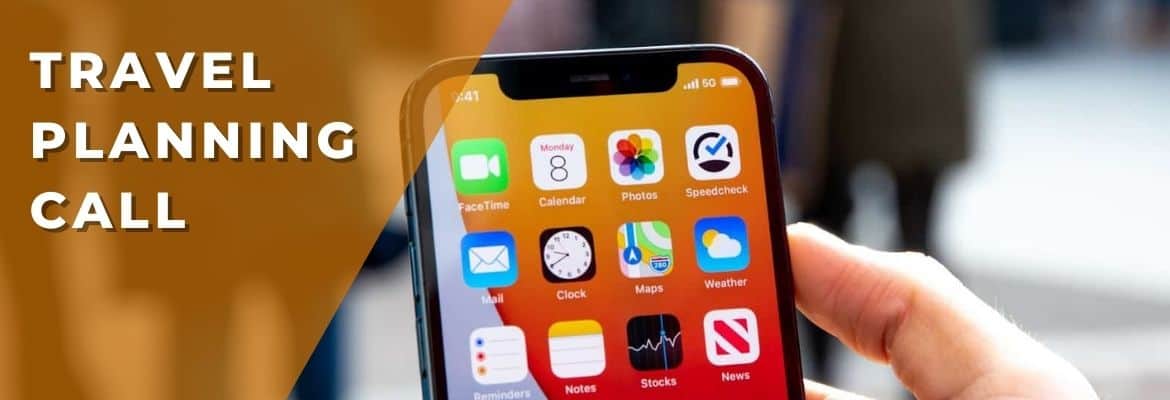
In the 1960s, a non-Japanese speaking friend of my late mother in law got lost in Tokyo. A young Japanese man who spoke English helped back to her hotel and they kept in touch.
When my husband spent a junior year abroad at Sophia University in 1970, she gave him her friend’s name. The two became good friends and visited each other many times over the past 53 years, most recently in March of this year after Japan opened up. Here’s their photo:
https://photos.app.goo.gl/dyWBMWTjDW9fuAu66
Thanks for sharing that story! That’s exactly the kind of friendships that can arise from these situations where you think (lack of) language will be a barrier, and it turns out to be the opposite. 🙂